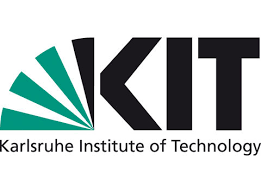Karlsruhe Institute of Technology: Design large accelerator facilities to be energy-efficient and sustainable
Accelerators are key research instruments, for example in physics, chemistry, biology, medicine or materials science. The Karlsruhe Institute of Technology (KIT) is researching concepts and components in the new test field KITTEN that will not only make such accelerator systems more powerful in the future, but also as energy-efficient and sustainable as possible. The inauguration of the test field is on July 21, 2022 from 3:30 p.m. in the TRIANGEL Open Space on Kronenplatz. The media are invited to this. Registration by July 20th by e-mail to presse ∂ kit edu .
Modern particle accelerators bring small particles such as electrons or atomic nuclei to speeds close to the speed of light. Researchers are thus penetrating the smallest particles and their interactions. This makes the accelerators key research instruments: “Regardless of whether it is about future energy supply, climate protection or the mobility turnaround, materials science or medicine: research needs high-performance infrastructures in order to be able to master these challenges. At the same time, we are faced with the task and assume responsibility for making the operation of these systems as energy-efficient as possible,” says the President of KIT, Professor Holger Hanselka.
Goal: energy efficiency with maximum performance
“One goal of our research is to make accelerators and their infrastructure as energy-efficient as possible. So far, these have usually only been geared towards maximum performance, but not towards energy efficiency,” says Professor Anke-Susanne Müller, Head of the Institute for Accelerator Physics and Technology at KIT.
In order to optimize the energy footprint of accelerator facilities, KIT has combined the accelerator test facility KARA with the Energy Lab 2.0 in the KITTEN test field (stands for: KIT test field for energy efficiency and network stability ). “Here, concepts of energy efficiency and sustainability from component to system should flow into current and new plants,” says Müller. Components of the test field include a photovoltaic system on the roof of the accelerator hall in combination with innovative cooling concepts and AI-supported real-time optimization of operation.
Platform for accelerator technology of the future
KITTEN is part of the “Accelerator Technology Platform” (ATP) at KIT, which is working on developing the accelerator technology of the future. “The ATP is about redesigning and operating the large future research infrastructures. It is the central contact point for science and industry to efficiently develop the technologies relevant to accelerators,” explains Müller.
Inauguration of the KITTEN test field on July 21, 2022
The KITTEN test field will be inaugurated on July 21, 2022 with a panel discussion in the TRIANGEL Open Space on Kronenplatz and a ceremony on the North Campus of KIT. Media representatives are invited, please register by July 20, 2022 by email to presse ∂ kit edu .
program
3:30 p.m Panel discussion: Are large research infrastructures reaching their limits? New energy concepts for future research.
Participants:
Prof. Holger Hanselka, President of KIT, Research Area Coordinator Energy and Vice President of the Helmholtz Association
Prof. Rolf Heuer, former Director General of CERN
Prof. Jürgen Debus, Director of the National Center for Tumor Diseases, Heidelberg
Prof. Veit Hagenmeyer, Head of the Institute for Automation and Applied Computer Science, KIT
Prof. Markus Klute, Head of the Institute for Experimental Particle Physics, KIT
Moderator: Prof. Anke-Susanne Müller, Head of the Institute for Accelerator Physics and Technology, KIT
4:45 p.m Bus transfer to KIT Campus North (for registered guests)
5:15 p.m greetings
Prof. Alexander Wanner, Vice President for Teaching and Academic Affairs of KIT
Prof. Joachim Knebel, Head of Division 3 – Mechanical and Electrical Engineering at KIT
5:35 p.m Artistic prelude, Badisches Staatstheater Karlsruhe
5:55 p.m Inauguration ceremony KITTEN with live connection to Energy Lab 2.0
6:05 p.m Champagne reception with background music
As “The Research University in the Helmholtz Association”, KIT creates and imparts knowledge for society and the environment. The aim is to make significant contributions to global challenges in the fields of energy, mobility and information. To this end, around 9,800 employees work together on a broad disciplinary basis in natural sciences, engineering, economics, humanities and social sciences. KIT prepares its 22,300 students for responsible tasks in society, business, and science through research-oriented university studies. The innovation activity at KIT bridges the gap between knowledge and application for social benefit, economic prosperity and the preservation of our natural foundations of life.

